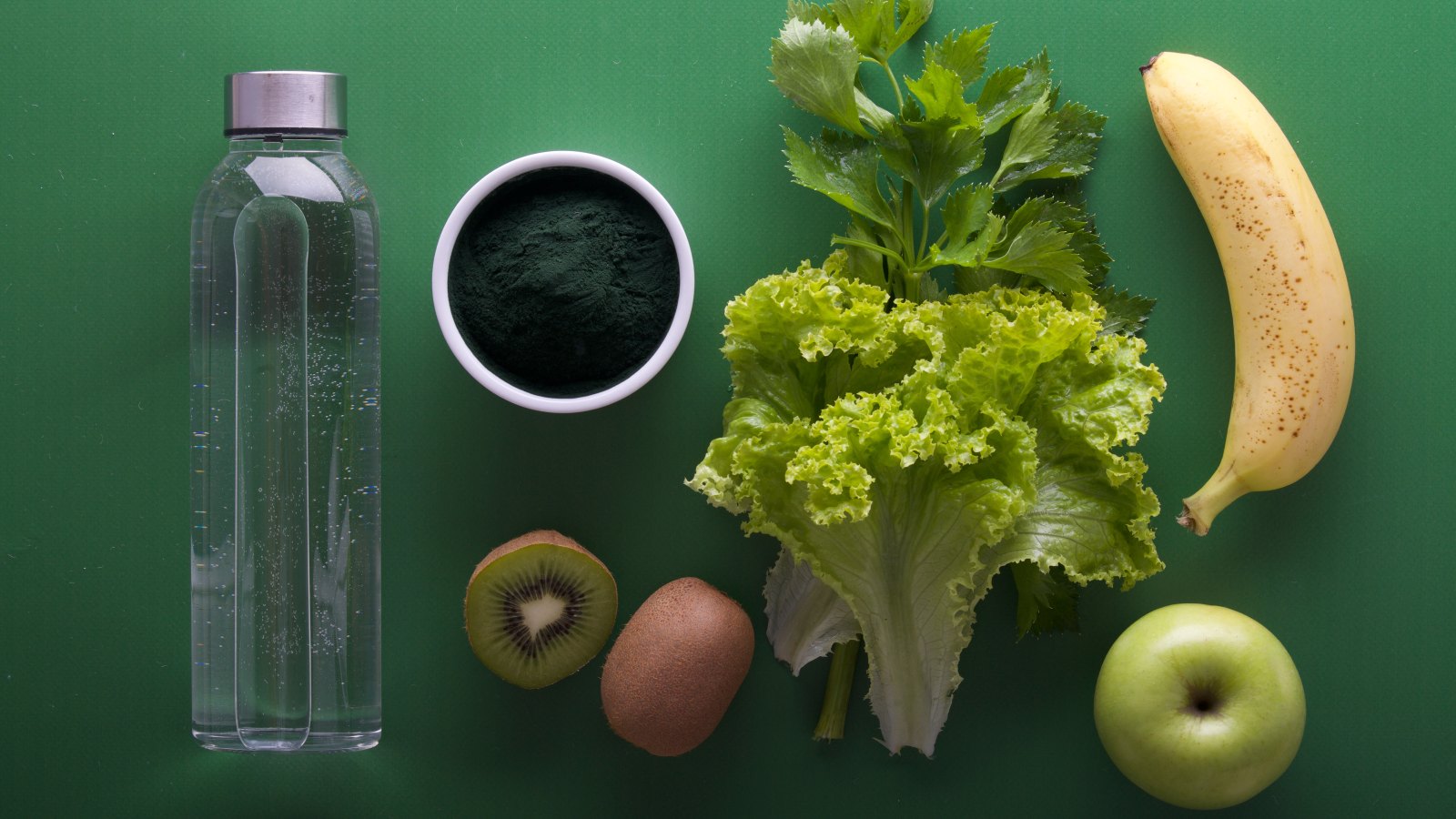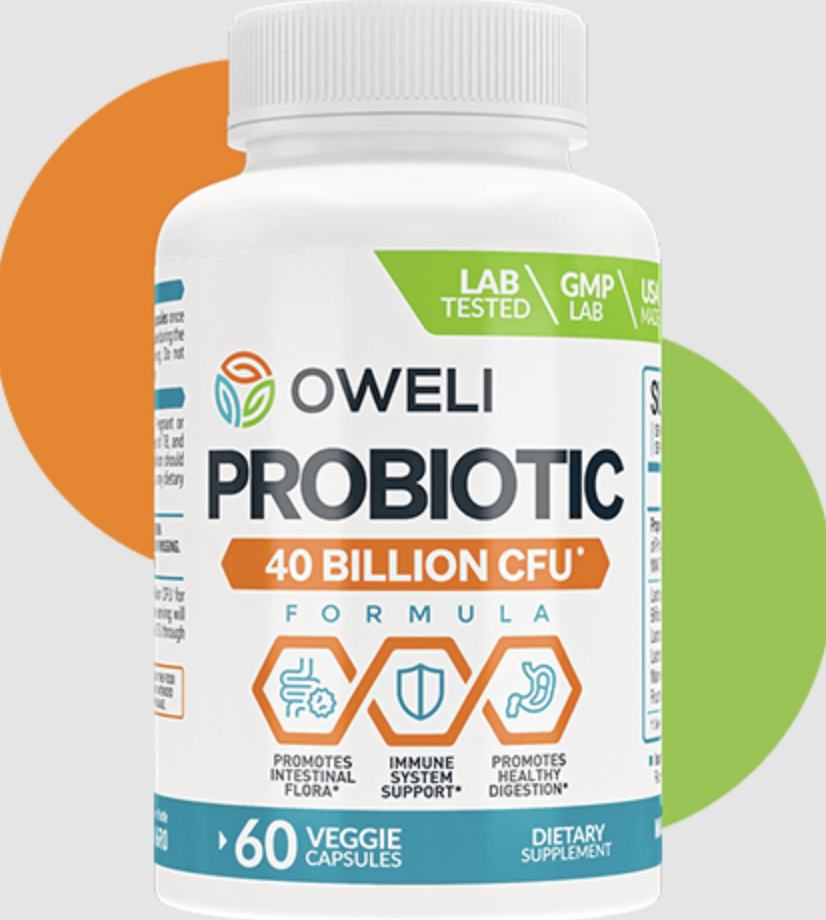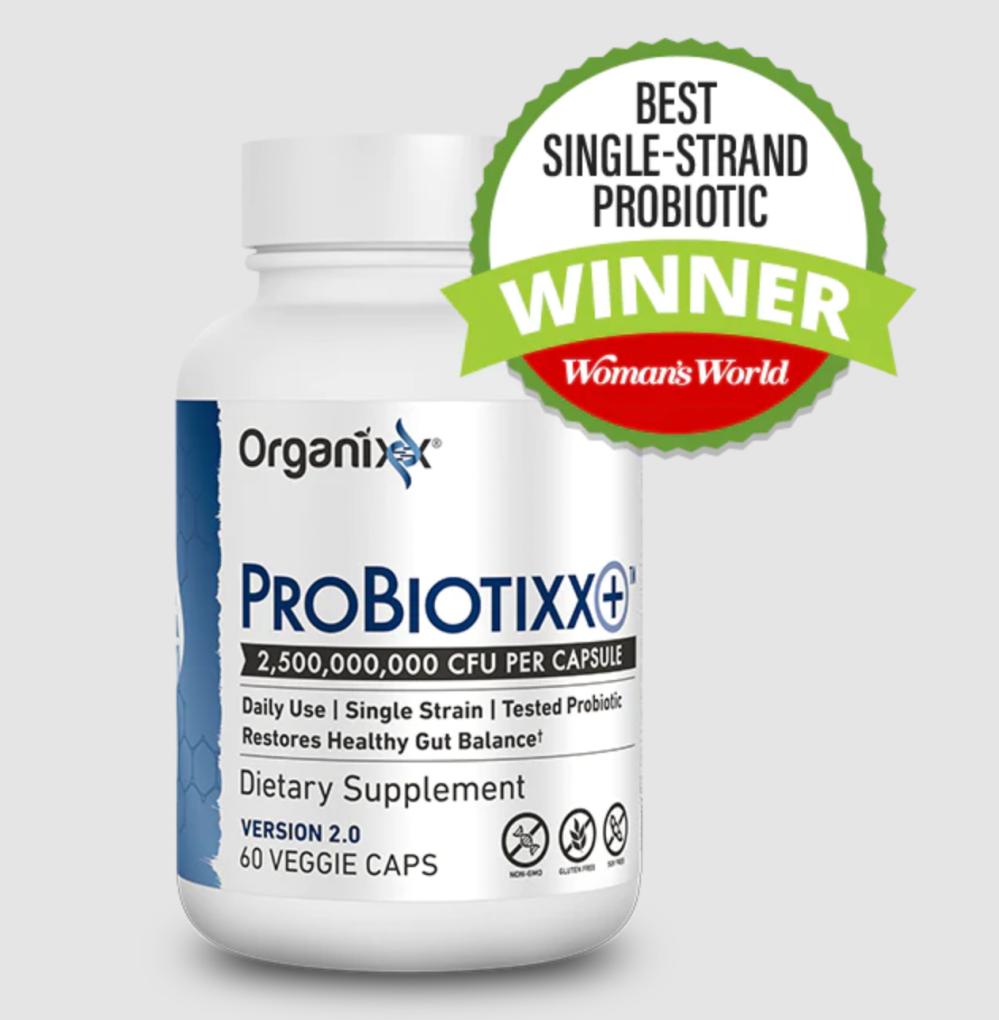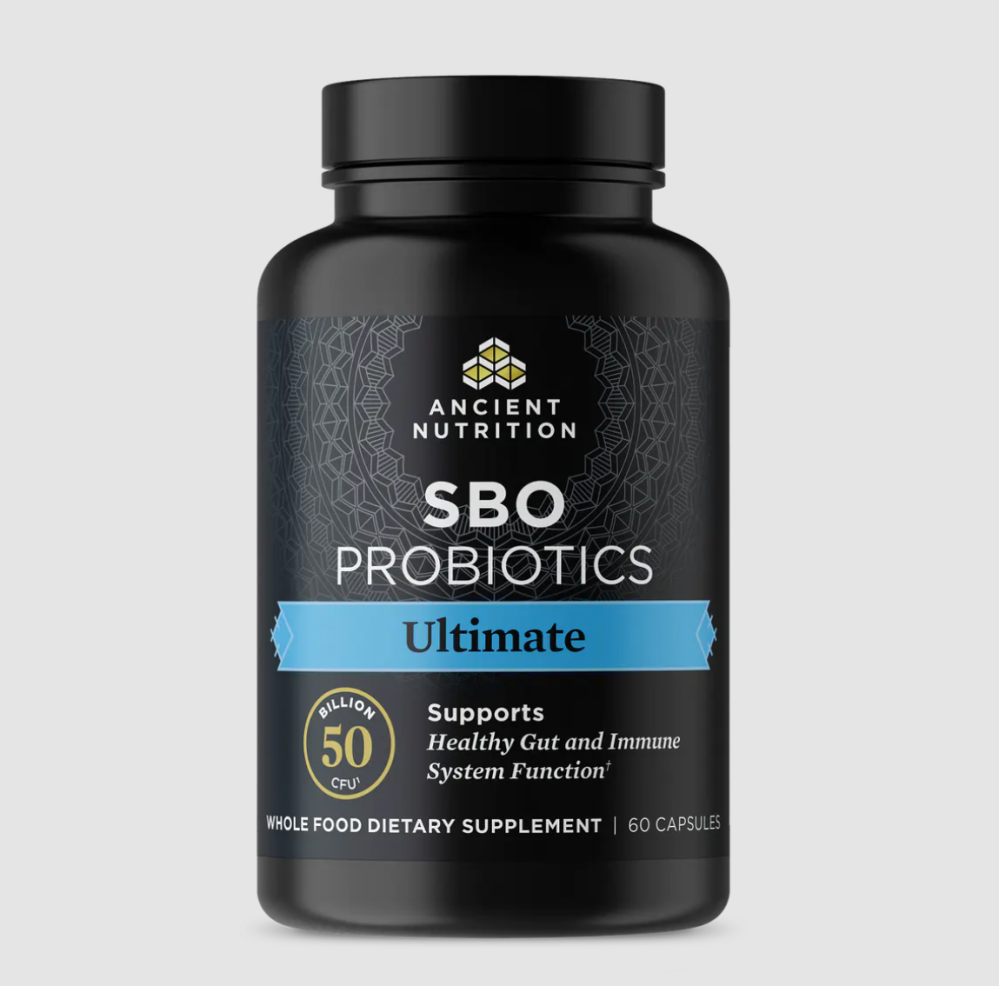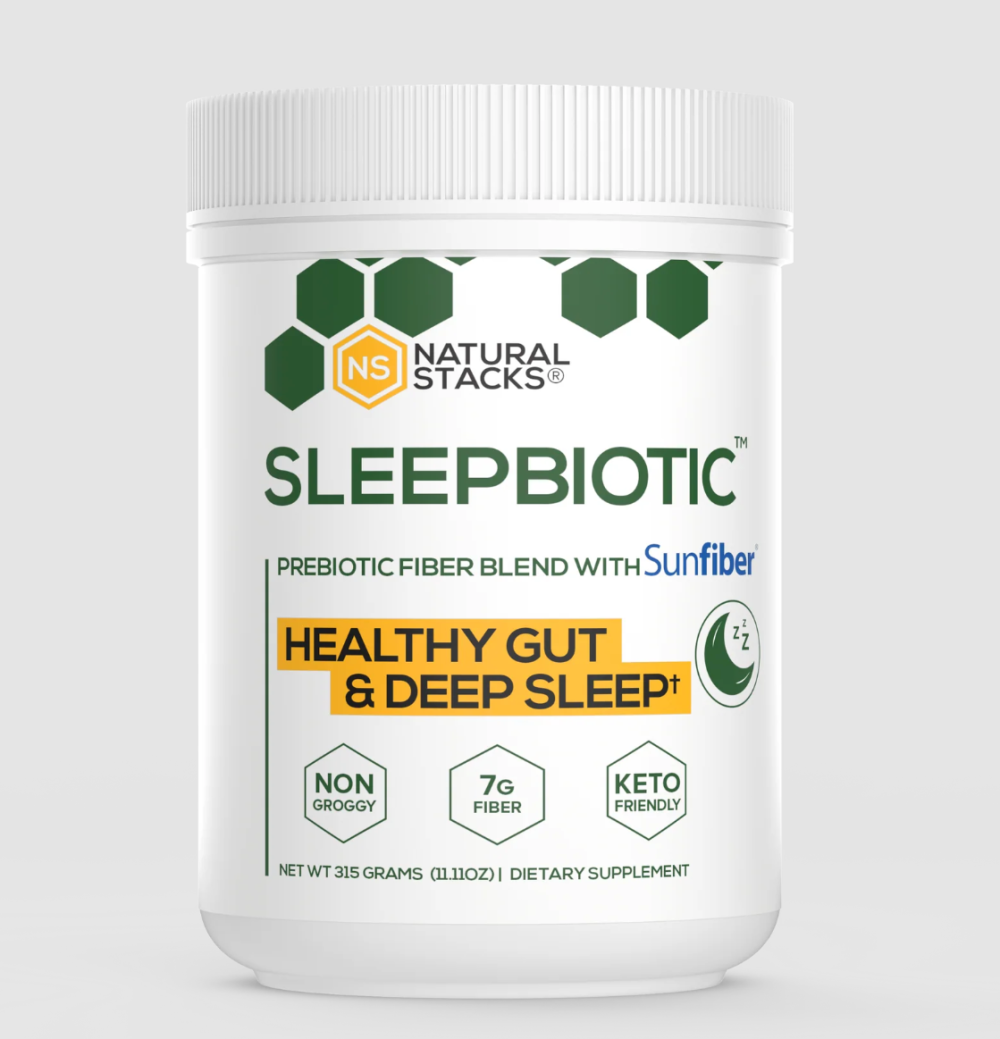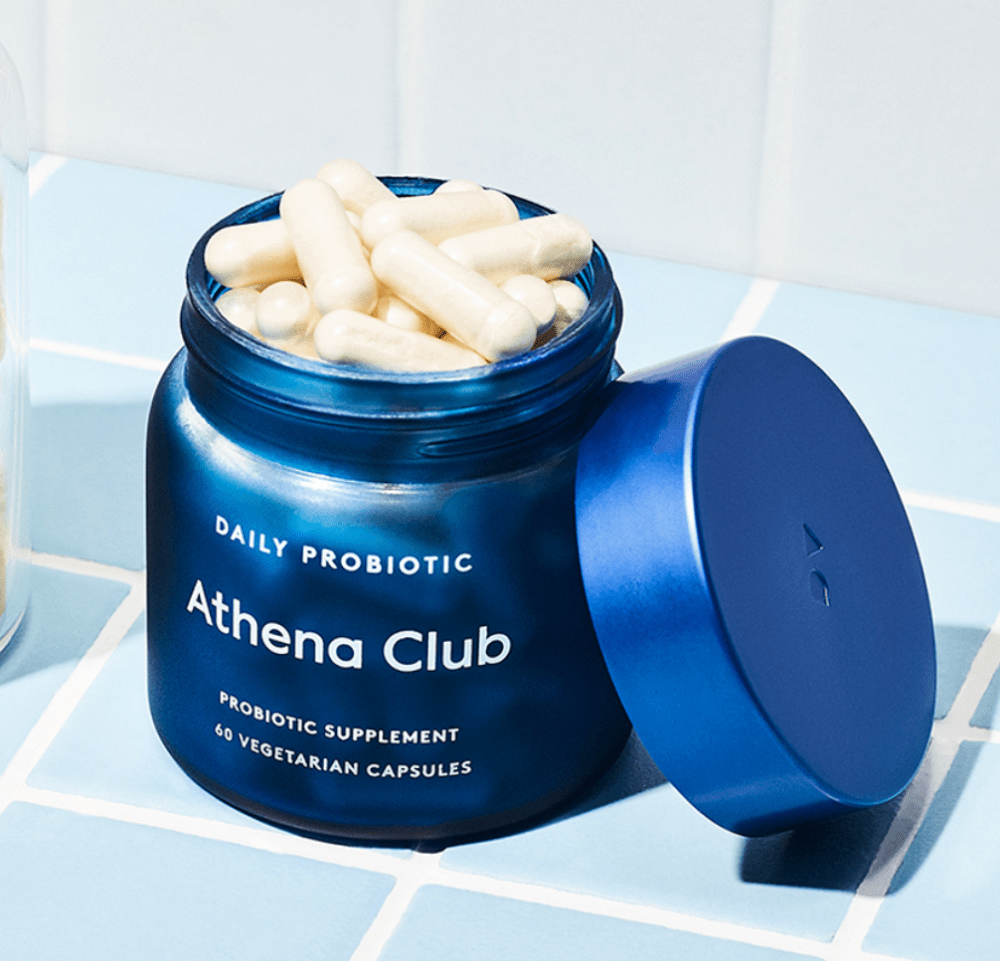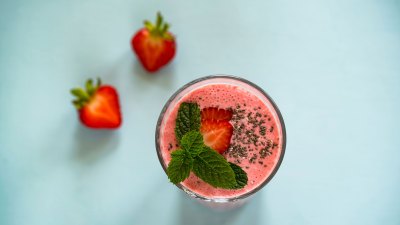This is branded content. Us Weekly has affiliate partnerships so we may receive compensation for some links to products and services. Learn more!
Probiotics can play a powerful role in sustaining digestive and immune health. The mind-gut connection influences your overall wellness. Trillions of microorganisms live in the gastrointestinal tract and many people are discovering that taking a daily probiotic supplement has enhanced digestion and elimination. In addition, many people report that probiotics reduce stomach bloat and gassiness. Emerging research studies point to the effectiveness of probiotics in managing weight, brain function and sleep.
It’s no wonder that an increasing number of people are interested in probiotic supplements for various health conditions.
The probiotic supplement market has grown exponentially in the past decade and sales are expected to reach $65 billion in 2024. That’s why we’ve reviewed the top probiotics in 2023. Our detailed buying guide covers all aspects to help you successfully find the right option for you.
- Best Overall Probiotic: Oweli Probiotic
- Best Immune Booster: Organixx ProBiotixx+
- Most Affordable: Ancient Nutrition SBO Probiotics Ultimate
- Best Sleep Support Probiotic: Natural Stacks SleepBiotic
- Best Organic Probiotic: Athena Club Daily Probiotic
Finding the Optimal Probiotic for You: A Buyer’s Guide
We have reviewed many probiotic products to create a list of our top 5 quality probiotic supplements. Hopefully, this list will help you find the probiotic product to meet your health needs.
How We Picked the Best Probiotics
To identify the best probiotic products, we reviewed the production process, ingredient quality and customer reviews. Products included on our list met high standards for these three areas.
Production Process
The production process for making probiotic products involves selecting a strain or strains of microorganisms to include in a supplement formulation. The microorganisms are grown and then fermented. They are concentrated in a centrifuge and blended into a powder.
Customer Reviews
We included products with high customer satisfaction. Many on our list have received an impressive number of 5-star reviews. We analyzed customer reviews to determine which products delivered on their promise to optimize wellness. Customer support satisfaction was also a critical factor since customers value professional and timely responses to inquiries and clear product information.
Quality Ingredients
We searched for products that contain some of the key quality ingredients responsible for specific health benefits such as lactobacillus acidophilus, bifidobacterium lactis and lactobacillus plantarum.
Lactobacillus acidophilus is associated with digestive health. Lactobacillus rhamnosus maintains the balance of bacteria for optimal vaginal health. It is also known to help lessen depression and strengthen the immune system.
The Food and Drug Association does not regulate probiotics, because they are categorized as supplements and not food. A supplement company voluntarily discloses information on quality and purity. Some companies may produce probiotic products that may or may not contain the amounts indicated on the label. We included companies that follow cGMP standards, Kosher and other guidelines that point to high quality and purity standards.
What to Look For When Buying Probiotics
One key characteristic to consider is the colony-forming unit (CFU) included in a supplement. CFU is the number of cells that can increase and develop the colony. Check the CFU on products and look for products that guarantee CFU up until the product expiration date.
Strain
Research the various strains and the health properties associated with which one to determine which strains might be most appropriate for you.
Some commonly used strains in probiotic products are:
- Lactobacillus
- Bifidobacterium
- Saccharomyces
- Streptococcus
- Enterococcus
- Escherichia
- Bacillus
Some nutritionists recommend taking a probiotic that includes at least 10-30 strains for general wellness support. Others suggest using a single strain or a specialized formula that addresses specific symptoms. Those new to probiotic use should try a new product for several weeks or months to determine its effectiveness. You may find you have to try several before finding the right supplement for your needs.
Shelf Life
Each probiotic product has an expiration date indicating when a product’s active ingredients are no longer effective or fresh. Most products have an expiration date within a year or two of manufacturing. Proper storage of products potentially ensures products will remain fresh and suitable for use until the expiration date. It is important to follow the manufacturer’s recommendations for storage. If not properly stored, the quality and effectiveness of ingredients can deteriorate. Under ideal storage conditions, the shelf life of a probiotic product can be extended.
Some strategies to prolong freshness include:
- Keeping capsules in packaging
- Proper storage in a cool, dry cabinet
Targeted Formulation
Many supplements are formulated to target specific health concerns. For example, many probiotics are focused on digestive health, but a growing number of products on the market address sex-specific health issues such as supporting a healthy bacterial balance necessary for optimal vaginal health. Other probiotics include ingredients to promote sleep as well as gut health. Sleep probiotics might include ingredients like chamomile or melatonin.
Price
Probiotic products can be affordable and cost in the range of 15-30 dollars. Some can cost $75 or higher for supplements enhanced with specific ingredients. Once you determine which product(s) works best for you, find out if the company offers an auto-delivery subscription option. Subscriptions are a great way to save money once you identify a product you would like to use on a long-term basis.
What Are Probiotics?
Probiotics are live microorganisms found in foods and supplements that help sustain the good bacteria called microflora in the body.
Probiotics vs Prebiotics
Microbiome therapy involves taking both probiotics and prebiotics at the same time. Prebiotics feed and support the beneficial bacteria. You can take prebiotics and probiotics together, but medical experts recommend spacing them out by 15 or more minutes.
Benefits of Probiotics
Some of the benefits include improved digestive function, stronger immune health, better sleep and improved memory and mood. Probiotics assist in the production of antibodies which strengthens immune responses. Women report less frequent or severe vaginal yeast infections when they take probiotics.
Many research studies have linked probiotic use to effective weight management. Some research studies suggest that probiotics potentially prevent pathogens from causing disease.
Best Probiotics in 2023
The following section covers information about the winners, some basic facts about each company and their winning products.
Best Overall Probiotic: Oweli Probiotic
Pros:
- Optimizes skin health
- Contains 40 Billion CFUs
- Oweli offers a 100-day guarantee
Cons:
- None that we could find
Oweli Probiotic contains potent 40 probiotic strains that boost gut health and immune health. This supplement maintains healthy gut bacteria and promotes efficient metabolism. Oweli manufactures these multi-strain supplements using MAKtrek® Bi-Pass Technology. They are formulated to support immune and digestive health, but they also contain ingredients effective at promoting skin health and a positive mood.
Customers love how it supports gut health and improves their overall well-being. They love how using the product has boosted their mood and immune responses. Some customers report feeling less stressed since they started taking Oweli Probiotic.
Specs:
- Size: 60 capsules
- How to Use: Take two capsules every day. For best results, take one capsule in the morning and one in the evening.
- Active ingredients: lactobacillus acidophilus, bifidobacterium lactis, lactobacillus plantarum, lactobacillus paracasei
Best Immune Booster: Organixx ProBiotixx+
Pros:
- Vegetarian
- Effectively counters negative gut effects of commonly prescribed antibiotics
- Product has over 14,000 5-star customer reviews
- Shelf-stable plant probiotics that do not require refrigeration
Cons:
- No option for a one-time purchase
Each ProBiotixx+ supplement contains over 2.5 billion colony-forming units (CFU). They also contain herbs formulated to flush toxins out of the system. These supplements help reduce bloating after meals, decrease diarrhea and build a stronger immune defense.
Customers love the “easy to swallow” veggie capsules. Some customers say this product has significantly improved their overall wellness. It does not have to be refrigerated, so customers find it convenient to take the capsules with them when they travel.
Specs:
- Size: 60 veggie capsules
- How to Use: Take one or two capsules with each meal and one or two capsules before bedtime.
- Active ingredients: lactobacillus plantarum
Most Affordable: Ancient Nutrition SBO Probiotics Ultimate
Pros:
- Paleo-friendly, keto-friendly
- Easy to swallow
- Affordable price and various subscription options
Cons:
- Must take capsules on an empty stomach
Ancient Nutrition’s Zinc and Probiotics capsules are formulated to optimize immune health. Each capsule contains 20 mg of zinc and 20 mg of bacillus subtilis. Ancient Nutrition sources an enzyme-activated form of zinc as the key active ingredient. Zinc is called the “intelligence mineral” because the liver needs sufficient zinc levels to mobilize and release stored vitamin A into the bloodstream. Other ingredients include rice fiber and hypromellose.
Customers describe the capsules as easy to swallow and highly effective. Many customers report feeling stronger and more vibrant after several weeks of use. Some customers report improvements in skin health and appearance. Others claim it has improved their digestive system functions. Many customers have integrated this affordable, high-quality product into their daily wellness routine.
Specs:
- Size: 30 capsules
- How to Use: Take one capsule per day with 8 ounces of water or a beverage.
- Active ingredients: zinc and bacillus subtilis
Best Sleep Support Probiotic: Natural Stacks SleepBiotic
Pros:
- 7 grams of fiber
- Keto friendly
- No synthetic fillers
Cons:
- Not an all-around probiotic
Natural Stacks SleepBiotic promotes better digestion and sleep. The company believes better gut health results in better sleep. It is high in fiber and potassium. This product does not cause an overly groggy feeling.
Customers like the flavor and they love the effects of better sleep and gut health. Many customers claim it improved their gastrointestinal function. They claim SleepBiotic helps them fall asleep and stay asleep without any grogginess the next morning.
Specs:
- Size: 315 grams (20 servings per container)
- How to Use: Mix a scoop with 4-6 ounces of water before bedtime.
- Active ingredients: partially hydrolyzed guar gum (Sunfiber), green banana flour and German chamomile-extract
Best Organic Probiotic: Athena Club Daily Probiotic
Pros:
- Safe for daily use
- Formulated to support women’s health
- Vegan, non-GMO and kosher certified
Cons:
- Made with tree nuts (coconut)
The Athena Club supplement bottle contains 60 vegetarian capsules. They contain no synthetic fillers and contain 32 billion CFUs.
Customers love the positive results on digestive health without any bloating. Many report that they experienced positive and gentle effects quickly. Many customers rave about the cute packaging.
Specs:
- Size: 60 capsules per bottle
- How to Use: Take one to two capsules per day.
- Active ingredients: lactobacillus acidophilus, bifidobacterium lactis, lactobacillus rhamnosus, lactobacillus rhamnosus
People Also Ask:
How do probiotics work?
Probiotics contain microorganisms that sustain the good bacteria in the body. Microorganisms stimulate and boost the immune system. Scientists also believe that probiotics can reduce diarrhea symptoms after pathogen exposure.
Where are probiotics found?
Probiotics can be found in yogurt, certain grains, bananas and fermented foods such as sauerkraut. Probiotic supplements are made by extracting and isolating specific strains to manufacture products that target specific health complaints such as constipation, stomach discomfort and other GI problems.
Are there any side effects of probiotics?
Experiencing some side effects of probiotics is always a possibility, but they are well tolerated by most people. Potential side effects include:
- Stomach irritation
- Allergic reaction
- Bloating
- Gas
- Diarrhea
Side effects are usually mild and temporary and subside with decreasing or stopping probiotic use. However, some people can experience moderate to severe side effects in rare instances. If symptoms do not improve, consult your physician.
Can probiotics help with digestive issues?
Yes, a significant number of research studies have shown that probiotics enhance digestive function. Microorganisms are abundant in the small and large intestines and also exist throughout the body. Diet and environmental factors can impact gut health, so many people rely on probiotics to restore optimal function.
When is the best time to take probiotics?
Many medical professionals and nutritionists recommend taking a dose in the morning although you will know after taking probiotics for several weeks when the most optimal time to dose with your schedule and needs.
Where are probiotics found?
Probiotics are found in foods and supplements. High-probiotic foods include kombucha, sourdough bread, kimchi and some types of cheese such as feta and gouda.
Can probiotics be taken with antibiotics?
Yes, it is safe to take probiotics and antibiotics at the same time. It is believed that probiotics offset the negative impact of antibiotics on the digestive tract. Probiotics can replenish bacteria in the intestine that may have been lost or damaged when a person was taking antibiotics.
Do I have to take probiotics forever?
No, a person does not have to take probiotics indefinitely. A person can stop taking probiotics for several valid reasons. They can also restart probiotics at any time.
Some people report the benefits of probiotics plateau and these individuals take a break from probiotic use. Some continue to feel good after stopping long-term probiotic use, but others noticed that their digestive functions and overall health were not as good once they stopped taking probiotics.
What is a soil-based organism (SBO) probiotic?
A soil-based organism (SBO) probiotics enhances immune function. SBO probiotics produce lactic acid which supports gut health. SBO probiotics are effective at reducing stomach and intestinal problems.
Why Trust Us
There is a wide range of probiotic products to try, so we made sure to do in-depth research into each product we chose.
Whether you are looking to maximize your gastrointestinal and immune health or have more specific targets, this curated list has a product you can trust.
Disclaimer: While we work to ensure that product information is correct, on occasion manufacturers may alter their ingredient lists. Actual product packaging and materials may contain more and/or different information than that shown on our website. We recommend that you do not solely rely on the information presented and that you always read labels, warnings and directions before using or consuming a product. For additional information about a product, please contact the manufacturer. Content on this site is for reference purposes and is not intended to substitute for advice given by a physician, pharmacist or other licensed health-care professional. You should not use this information as self-diagnosis or for treating a health problem or disease. Contact your health-care provider immediately if you suspect that you have a medical problem. Information and statements regarding dietary supplements have not been evaluated by the Food and Drug Administration and are not intended to diagnose, treat, cure or prevent any disease or health condition. Us Weekly assumes no liability for inaccuracies or misstatements about products.
Us Weekly partners with external contributors. All contributor content is reviewed by the Us Weekly editorial staff.
